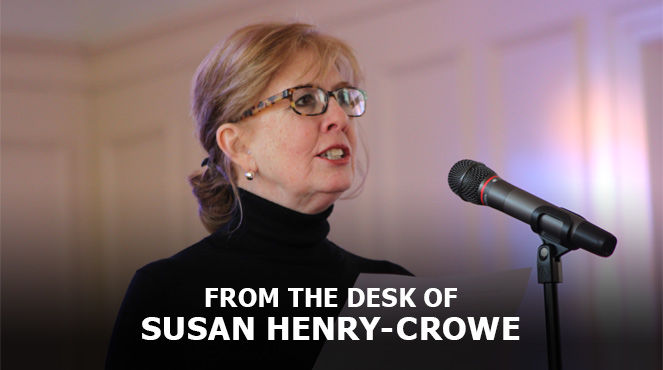Dislocation
We have changed our understanding of home or homelessness, of work and no work, of play and where we play, of how we listen to music, how we spend our hours, how we cook, what we eat, how we pray.

Dislocation means that one has some memory of location. The past 7 or so months have played tricks with our souls and minds. We think we remember the winter—when we knew where we were, who we were, and how to live. Our rhythms grounded us. Our workplaces, schools, churches, marketplaces—life outside the home helped us identify who and where in time and space we belonged.
For many, we always returned home but some of our identity was not just grounded at “home.” The early days of working from home were thought to be temporary as we waited—to return to normal.
Half a year later, fall is coming, and days and months have passed. We have waited, adapted, zoomed, re-oriented, turned dining room tables into office space, kitchen tables into homework desks and basements into studios for zoom meetings. We have done the dance of staying close and venturing out, wearing masks and pulling them away when we are in close proximity to another of our kind. We try to relocate ourselves in the vast contaminated, fiery, flooded bubble called earth. We have changed our understanding of home or homelessness, of work and no work, of play and where we play, of how we listen to music, how we spend our hours, how we cook, what we eat, how we pray.

Trying to find our place in this disease-filled world we watch the daily news with growing awareness of the centuries-long horror of racism, violence, inequity, injustice, children and families suffering without adequate food and housing, horrific and inhumane actions at our borders, woefully inadequate ways to learn, families losing their jobs left and right, health care professionals putting their lives on the line every day.
We have church services by Zoom or Facebook Live. It works pretty well. Some people come that had not or could not be present in church buildings in the recent past. We sing along with familiar hymns, listen to comforting or challenging Scripture readings, long to be together and make the best of it. This worship continues to be faithful, creative, prayerful, worshipful, and engaging communities of faith. I can imagine that this will last in some form. But the church buildings will never be quite the same again. Some will remain, some will close, but all will be changed.
A friend of mine wrote upon returning to Russia after she and her family were exiled in the 1970’s because of her father’s dissident, “I remember not the place but my memory of it and, perhaps, the smell of grass and the forest, but not this house…”

This will be our case. We will not really remember the place but our memory of the place. A new time and place will soon occupy our hearts and souls. Church on the couch, school on the kitchen table, walks with our families, home cooked food, the sound of crickets, hot summer nights turning into cool night walks.
We will gather again. It will be joyful in the moment. But other things will have begun to change us. Other things are transforming us.
It is reminiscent of a story from Luke (24:13-35). After the horror and trauma of the crucifixion, with deep grief and fear on the way to the tomb, the women are confused and directionless. We can picture them running around distraught, frantic, “beside themselves.”
Then Jesus appeared to them but they did not recognize him. He asked, “Why do you look for the living among the dead? He is not here, he is risen.” Stopped in their tracks, they remembered his earlier prophetic words that he would be crucified and on the third day rise again. They hurried to tell the eleven and all the rest.
And as is sometimes the case, the story of the women seemed like an idle tale. They were not believed. But Peter went back to the tomb and found only the clothes. He returned home amazed. We are in a time of loss and uncertainty, frantic and at times beside ourselves. And then—we remember—God comes to find us when we are lost, wandering, frightened and unsure.

In the early days after the crucifixion and resurrection, the early Christians did not know what would happen. They were dislocated. They did not have church buildings as we know them. There were homes, huts, outside gathering spaces, tents, meal tables, underground caverns and upper rooms. They had each other. They gathered and scattered in their small places. Soon these communities of the faithful began to share things in common, they broke bread and drank wine, shared with those who were poor, welcomed strangers, cared for the sick, sought the lost, brought in those living in exile, preached the Good News and turned their mourning into dancing.
In some ways, we will forever be dislocated. And one day that dislocation will be our redeemed location.